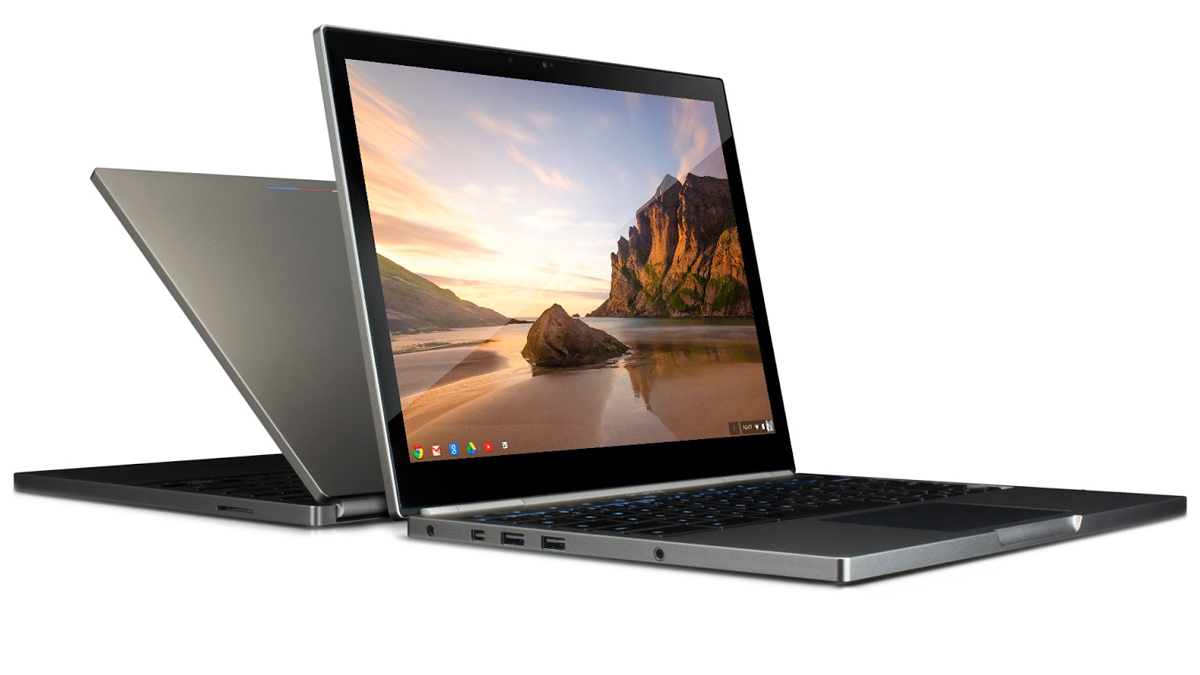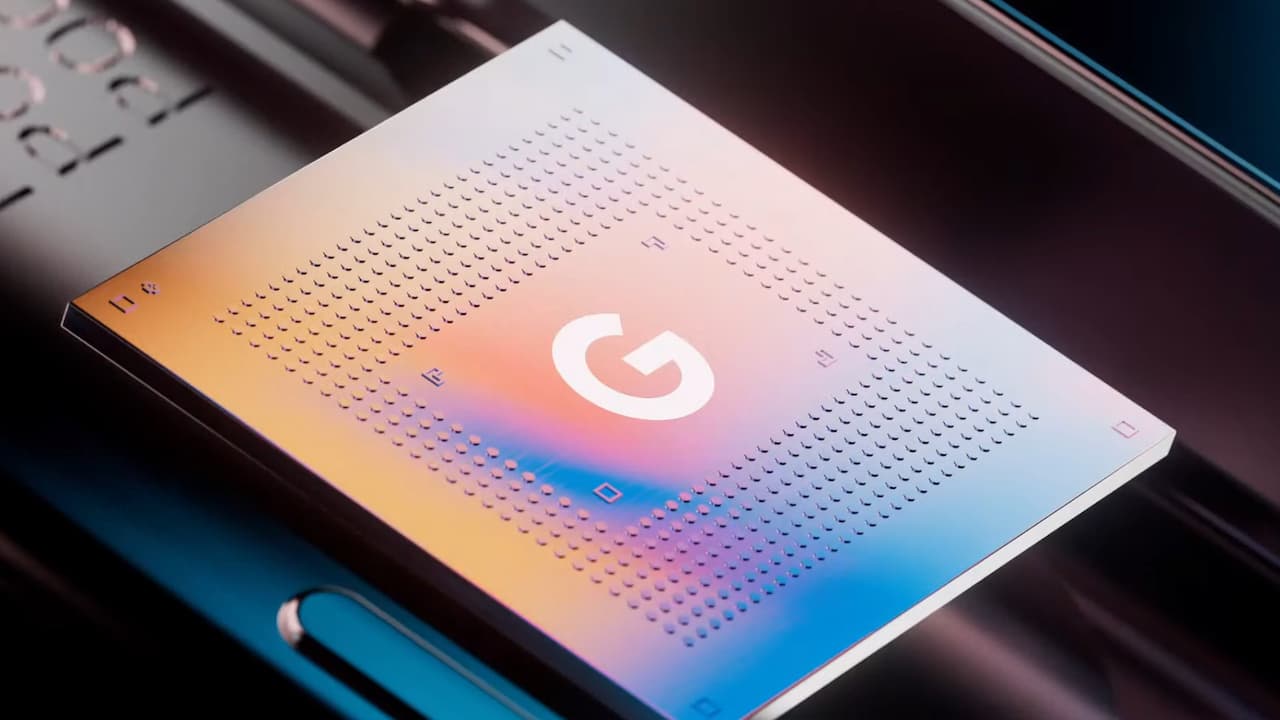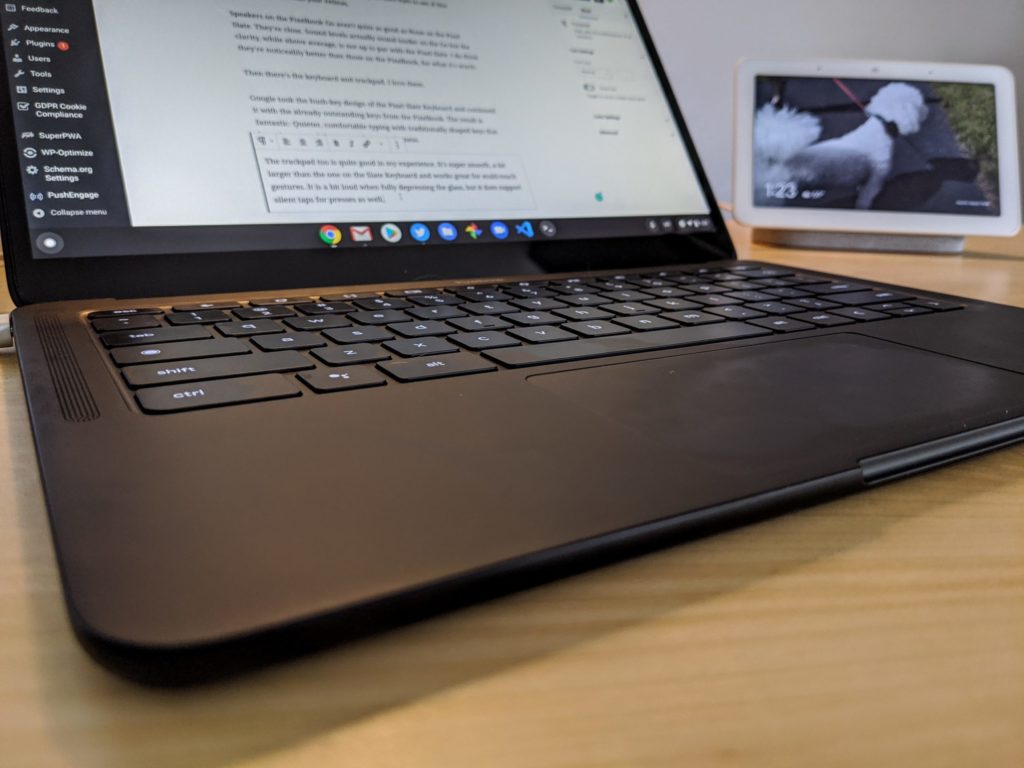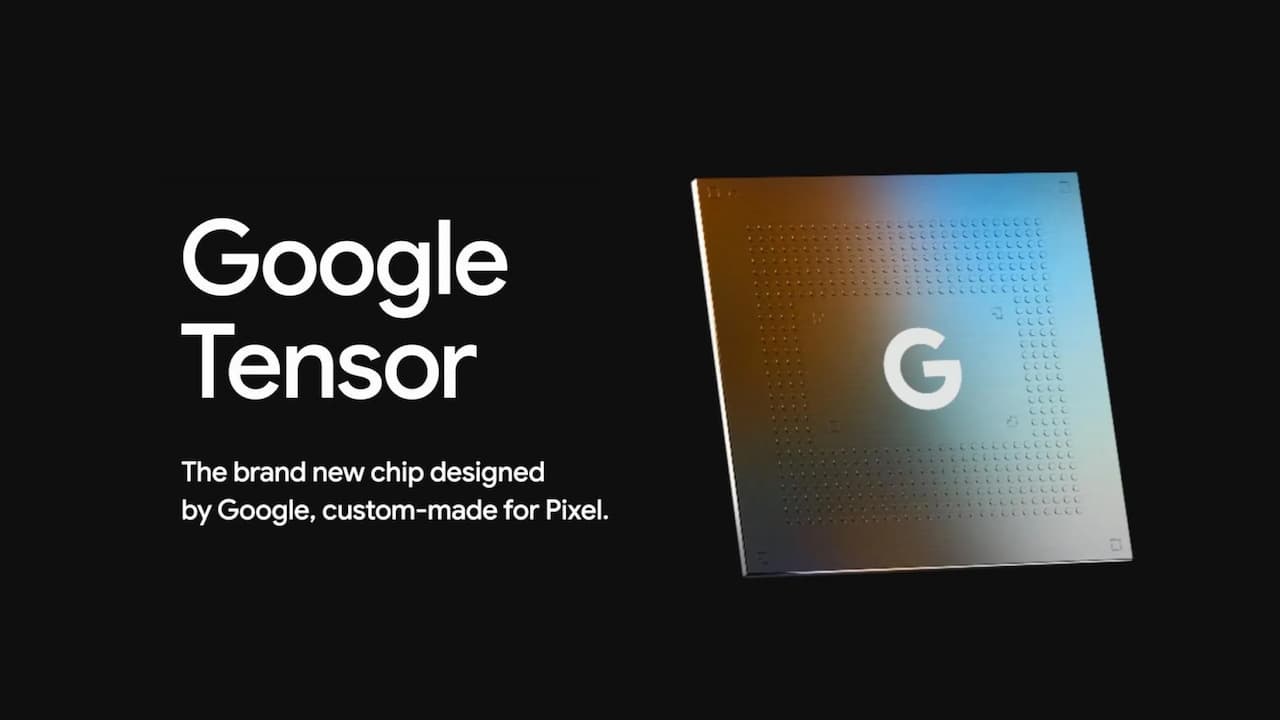Rumors of future Google Tensor chips made the rounds this week. According to Galaxy Club, Google is continuing to partner with Samsung on chip design and fabrication, now testing a 3rd gen Tensor processor. Google uses its own Tensor design in the latest Pixel phones and a Google Pixelbook with Tensor chip makes a ton of sense.
Here’s why.
The market for a Google Pixelbook has changed
First the Chromebook Pixel, then the Google Pixelbook and Pixelbook Go, were created for markets that didn’t exist at the time. Well, the Go may not completely fit that narrative, but I look at the Go as a continuation of the Pixelbook line. Back in 2013, you could either buy a slow, low-quality Chromebook or a slow, low-quality Chromebook.
Enter the Chromebook Pixel with its cost of more than $1,000 and choice of fast Intel Core i3, i5, or i7 processors.

This model and subsequent follow-ups offered the same: High performance. You also got some of the best industrial design in a Chromebook, even to this day.
But it’s 2022 now. And Google’s hardware partners have stepped up with their own high-performing, and/or nicely designed and built Chromebooks. Just look at the HP Elite Dragonfly Chromebook or the Acer Chromebook Spin 714 that I recently bought. The 12th gen Intel Core chipsets bring ultimate performance to ChromeOS.

A new Google Pixelbook doesn’t necessarily have to follow the same formula of the latest Intel processors, though. In fact, Apple has shown that you can design an ARM processor that outperforms a high-end Intel-powered device. So there’s an opportunity there for Google to do the same by extending the Tensor chip platform beyond Android devices.
Desktop class performance with no fan and more battery life? Sign me up for a Google Pixelbook and Tensor chip that can do that.
Tensor and Android apps on a Google Pixelbook
Although you can run Android apps on an Intel-based Chromebook, I’ve often found them to run better on non-Intel hardware. And I’m not the only one. Sure, Google has done great work getting Android app support on Chromebooks with an Intel processor. However, these apps are really optimized for ARM-based silicon.
And that’s what a Google Pixelbook with Tensor chipset would bring: A better Android app experience on Chromebooks. Sure, there are still improvements needed that have nothing to do with hardware. Optimized app resizing and better use of the larger screen found on a Chromebook is still a gap when it comes to Android on ChromeOS. But offering the best possible Android app performance on Chromebooks is a win too.
Economies of scale for Tensor chips
I don’t know how many Pixel phones Google sells and I’m sure it’s far more than the number of Google-branded Chromebooks. However, by using the same Tensor chip in both the latest Pixel handset and a new Google Pixelbook, Google can cut its costs. By ordering more Tensor chip production, the cost per chip can be lowered. That could lead to a high-performing Pixelbook that doesn’t cost as much as prior models.
And let’s face it: Google doesn’t order anywhere near as many chips, either for phones or Chromebooks, as Apple, Dell, HP, Lenovo, or Samsung. Yes, Samsung produces its own chips for its Galaxy phones, but the mobile division is completely different from the chip division.

That’s partly why any Pixelbook product costs you more than any similarly equipped Chromebook. Given its specifications, the Core i5 Pixelbook Go and its $849 starting price at the time is a perfect example of this.
Other vendors in this space buy far more processors and get a much bigger break on the price for them. By leveraging the Tensor orders for its Pixel phones, Google can request more Tensor chips and put them in a Chromebook. Scaling up its orders is really the only way to cut production costs on silicon. Unless Google decides to strip features from the chip to lower the cost, that is.
And best of all, using the same chipset for phones and Chromebooks lets Google manage its codebase more effectively. It doesn’t have to work with Intel or AMD to tweak software on either its phones or Chromebooks with Tensor inside the Pixels and a Google Pixelbook.
Will we see a Google Pixelbook with Tensor out of Mountain View? I haven’t seen any evidence of that yet, although I do keep looking. I think it would make complete sense and make quite a few Pixelbook fans very happy though.



12 Comments
Google should just go full Apple and not let other manufacturers make Chromebooks, then extend AUE to 12 years. With out that headache of having support so much hardware things will just work better. Stop Chrome OS being the new Windows mess.
60% of Chromebook hardware (made for the dustbin like all those android tablets people think make up market share) just sucks and when buyers find out about AUE they are going stop buying Chromebooks and Google will have to do this anyway.
Google only has phone market share because it’s free, most of them suck, essentially market dumping. Google should grow up and compete proper like Apple rather than just market dumping with free stuff. No doubt the Linux guys wont like this, but hey Linux guys get your own hardware put some money out rather than just mouth.
Windows is a “mess” because of legacy app support, not because of hardware. ????
looking forward to a *real* Chromebook but selfishly it can’t be soon as I just bought the spin 713 and partner will kill me if another ‘tech’ box arrives at the door.
yeah and the only thing wrong with Linux is that it doesn’t have an app store…. The only thing wrong with America is immigrants …
I know the media likes to simplify things but common Windows is a mess just because of leg apps?
Windows is a mess for 10 massive reasons at least, people who do front line consumer and business support know that. In fact their jobs depend on Windows being a mess in so many ways. Whole companies exist because of one Windows issue or another. Why they’ll never go for Chromebooks.
The legacy app issue could be handled better in a ton of ways. Containers / Stadia / Emulation / million tech possibilities. Things are lot deeper than that at Microsoft.
If they just had less hardware to support it could enable them to concentrate resources better and less complexity. That company can’t even create a web browser without copying Chrome code, the less they have to do the better…
Drivers issues and legs apps are symptoms not causes. You think if Microsoft did an OS from scratch it would be as good as Chrome OS? or Linux? Well one day they might and if you think they could then all the Linux fans can disappear then can’t they? hahha pigs might fly.
Microsoft new OS – would have adds, just as rubbish software support, security issues, offer you loans (used Edge recently anyone?), make you play candy crush, require a Microsoft phone to login, not let you move the taskbar, reboot at its whim, invite russia into your network, charge you per min usage, because they suck at it all, they like you to blame legacy apps because it lets anyone who works their off the hook.
Last week a windows update caused bit locker to mess up which forced hp / dell to shove out new firmware, which caused people to be locked out of their machines. Microsoft doesn’t even talk to hardware makers about these things and they never will, best if they didn’t have to then.
Kevin,
I’m thinking your analysis (greater volume of chips across pixelbook + phones gives better per unit cost efficiency) depends greatly on how much the new Tensor can ‘fit’ both the phone and pixelbook use cases.
It looks to me like the current gen Tensor is highly tuned to the ML and graphics workloads Google designed for the Pixel phones – to the extent they used two high performance cores instead of one at the expense of a mid performing core (as used in SOCs by other manufacturers at the time).
Looking at Apple as the benchmark, their silicon appears to be hardware optimised for the desktop use case, differently from their phone silicon… But this is a luxury of their scale that probably doesn’t add up for Google.
You’re analysis may be right – but only if Google can optimise for both use cases in a way that allows bringing the per unit cost down for both use cases.
Kevin,
If Google made a Tensor chip Chromebook would it be able to install Linux? Pardon my ignorance but I thought that Linux could only be installed on Intel based Chromebooks and not ARM processor Chromebooks.
Thanks
Linux runs on ARM chips although not all Linux apps are compiled for ARM. The Raspberry Pi has always used an ARM chip, for example, and has always supported Linux.
Awesome!! Thanks for the clarification. I would love to have a Tensor Google Pixelbook so it’s good to know that some Linux apps would work. I love my Acer Spin 714 due to it’s power and various I/O options but hate the speakers. But I also really like my Pixelbook Go but it’s long in the tooth and really would love for Google to make sequel to the 2017 Pixelbook or an updated Pixelbook Go with USI Pen support.
Please add the Acer Chromebook Vero 514 to the performance list … it goes up to Alder Lake Core i7, up to 16 GB RAM, plus the RAM is expandable (while CTL makes Chromeboxes with expandable RAM this is a first for a Chromebook AFAIK).
Also, please read this article: https://www.eejournal.com/article/ampere-ups-the-arm-ante/ as it explains why it is extremely impractical for Google to create an ARM CPU that competes with Intel, AMD or Apple. Instead they are forced to create CPUs from Arm Holdings’ Cortex-A and Cortex-X cores. Qualcomm and Samsung have invested over a decade and billions of R&D into using those cores and the best result to date – the Snapdragon 8c Gen 3 – gets crushed by a low TDP CPU for cheap netbooks like the Intel Core i5-1235U in the Lenovo Flex 5i. Arm Holdings needs to design a new CPU core for PCs but they are a small company – $2.7 billion in revenue in 2021 – who lacks the resources to do so. This is why Qualcomm has ditched Cortex for PCs in favor of Nuvia IP originally created for ARM servers by former Apple engineers.
Yes, Google does have options – a mutually beneficial cross licensing agreement with another Arm instruction set license holder like Ampere Computing – but what would it gain them, really? Nothing that working with AMD for a line of APUs similar to those in the Steam Deck wouldn’t accomplish cheaper and faster. Down the line, Google can switch from AMD to Intel to avail themselves of Intel’s “tiles” concept. Yes, the CPUs would need to use Intel Pentium, Core i3, Core i5 etc. as the compute tile. But everything else – GPU, RAM, modem, NPU, TPU, I/O and memory controllers etc. – can be a custom part implemented as a tile or tiles that Intel will assemble into an SOC. The “tiles” can be designed by anyone (i.e. Google) and manufactured by anyone (TSMC, Samsung, GloFlo, even Intel). https://www.extremetech.com/extreme/339015-intels-meteor-lake-tiles-will-be-made-mostly-by-tsmc
I hope we do eventually see a Pixelbook with a Tensor chip that realizes the same gains we got for Pixel phones. But I hope Google does more than just release a Pixelbook with a Tensor chip. I hope they license the Tensor chips out to third party OEM’s so we can get other Chromebooks running a Tensor chip outside of whatever Google makes available.
Case in point, I’d love to see Acer’s new Vero 514 run a Tensor chip which in theory should give longer life, better Android app compatibility and upgrade-ability. Things we haven’t always had in the ChromeOS world.
I’m excited at the prospects.
The market has not changed that much! I still cannot find a high-end Chromebook (I’m
Talking both build and performance) aside from the Pixelbook. This is especially true when we think of big brand names too. Ultimately I was tired of waiting on Google so I reluctantly went back to a Mac Air.
You mean that you cannot find an HP Elite Dragonfly Chromebook? Have you looked? Because you can order one off Amazon – and a number of other outlets – as we speak. Meaning that you “reluctantly” went back to a MacBook Air because you wanted to. Never mind that the Core i5 version of the Dragonfly Chromebook provides similar performance to an M1 MacBook Air.